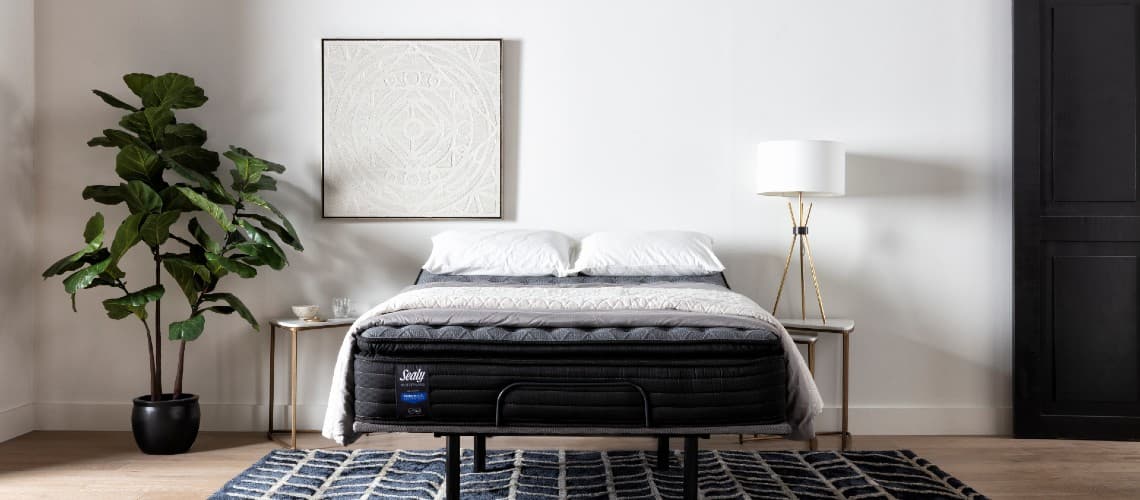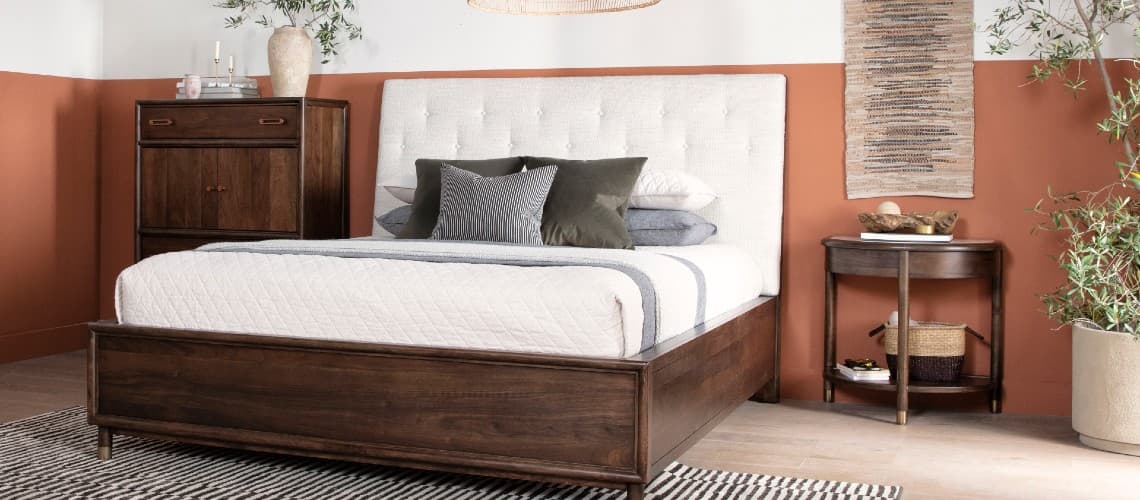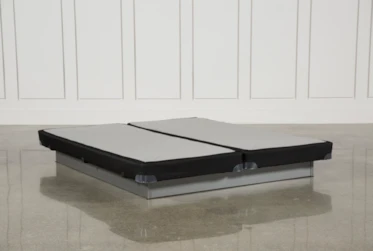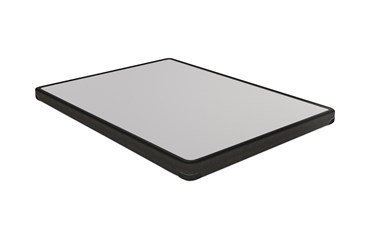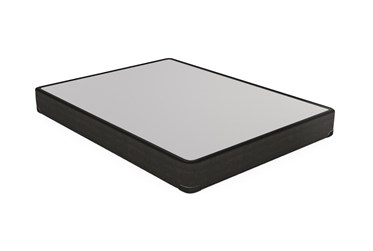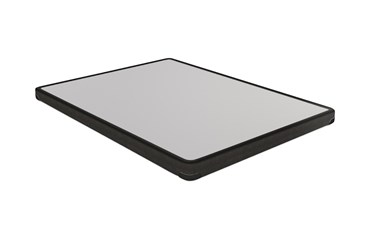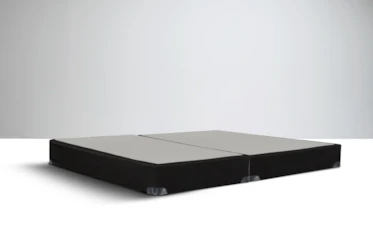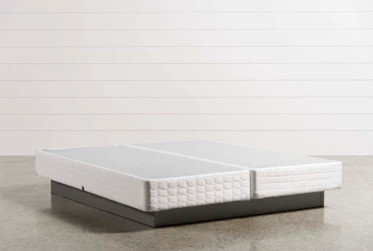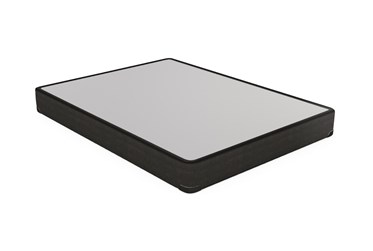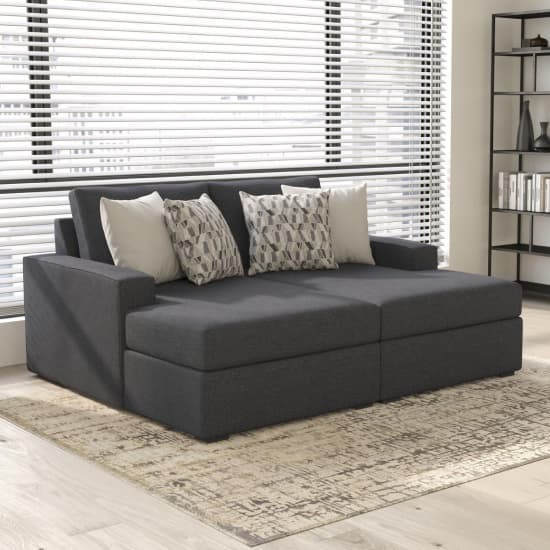How to Fix a Squeaky Mattress
What Causes a Squeaky Mattress?
While there are a number of things that can cause a squeaky mattress (and we’ll get to them in a bit!), in fact, this question should really be, what causes a squeaky bed – since the frame is, more often than not, the cause of squeaking! Over time, the constant pressure applied to a metal bedframe from a heavy mattress (and you sleeping on it) can lead to weakening of the base, feet or bed legs. If, after checking for weak spots (and not finding any), you still notice squeaking, the culprit could be that the size of your mattress is too big or small for the frame. If and when a mattress has too much room to slide around a too-big frame, or if a mattress is constantly pressing against the edges of a too-small frame, squeaking is almost always a certainty.
Of course, squeaking can come from the mattress, as well, but only if its’s an innerspring mattress. Loose springs, broken springs or old springs can start to groan and moan whenever you climb into or out of bed (or whenever direct pressure is applied to the mattress). If you’re worrying about squeaking in a memory foam mattress, you can stop: foam mattresses won’t ever squeak, no matter how old they are or what kind of foam they’re made of, since foam is soft, silent and not metal springs.
Dealing with a squeaky mattress or bed can have drastic effects on your sleep and overall health. Even a slight squeak can wake you up in the middle of the night, creating a ripple effect on your REM patterns, circadian rhythms and, in effect, how you feel the next morning and throughout the next day. If you have a squeaky mattress or bed, getting to the source of the squeaking – and fixing it – is essential.How to Fix a Squeaky Mattress
- Flip the mattress. If your mattress can be flipped (some can’t, so check beforehand!), then flipping it over on its opposite side can help to ease or silence squeaking, but it also has many other benefits, including flattening out the surface of the bed for a firmer and more supportive feel.
- Rotate the mattress. Unlike with flipping, you don’t have to check if you can rotate your mattress – any and all mattresses can be rotated, no matter the model or type. To rotate your mattress, simple move one end of the bed around 180 degrees. Doing this will switch the innersprings you place the most pressure on, the idea being that if the cause of the squeaking is in fact a spring, then rotating the mattress will mean that the problematic spring in question won’t be triggered anymore.
- Use a mattress topper. A mattress topper is a cost-effective, albeit temporary and only probable, solution to a squeaky innerspring mattress. The idea here is that if the noise is coming from direct pressure placed on an innerspring, then a topper acts as a buffer or barrier of sorts, muting the sound or, in the ideal situation, absorbing most of the pressure before it reaches the spring.
- Place an object below the squeaky spring. Another method of trying to resolve a squeaky spring is by placing a hard object under the area of the spring, in the hopes that the spring will be more supported and less likely to squeak. While nice in theory, this solution is, in actuality, more like one of those old wives’ tales that many people swear by, but can also have zero effect whatsoever. (It all really depends on how lucky you are in identifying where to place the object, as identifying the exact spot of the squeaky spring, without taking apart the entire mattress, is more often than not an impossible task.)
- Check the frame and bolts of the bed. Check to see if the culprit is your bedframe (rather than your mattress). A weak leg or a loose bolt is more often than not the number one cause of squeaking, and also the easiest to fix by tightening a screw or bolt (or opting for a new screw or bolt).
- Check your foundation and bed size. Last but not least, if you’re sleeping on a mattress that is not correctly-sized for your foundation or bedframe, then you need to switch it out for the correct size, as soon as possible. Incorrect sizing can lead to friction, causing squeaking, but if incorrect sizing is indeed the culprit, then squeaking is the least of your worries. Investing in a mattress base designed to go with your mattress will provide support for your back, extend the lifespan of your mattress, keep the warranty intact, and, yes, stop the squeaking.
How to Prevent a Squeaky Mattress
Since squeaking most often comes from a loose bed frame, the best way to prevent squeaking before it starts is to regularly check for any loose screws and bolts. Remember, too, that most bedframes aren’t designed to last forever, and if you’ve had the same one for decades, buying a new one is an easy way to solve the headaches coming from squeaking. Sometimes, though, squeaking can come from a mattress, in which case the best (and easiest) prevention is regularly rotating your mattress 180 degrees. Finally, proper mattress and bed care is essential; making sure you have the right size bed and foundation for your mattress will give your mattress even, firm support – minimizing the chances for squeaking.Stop the Squeaking
— More Great Articles —
Bases to Help Prevent a Squeaky Mattress
Read the Latest
Editorial Disclaimer: Articles featuring tips and advice are intended for educational purposes and only as general recommendations. Always practice personal discretion when using and caring for furniture, decor and related items.
